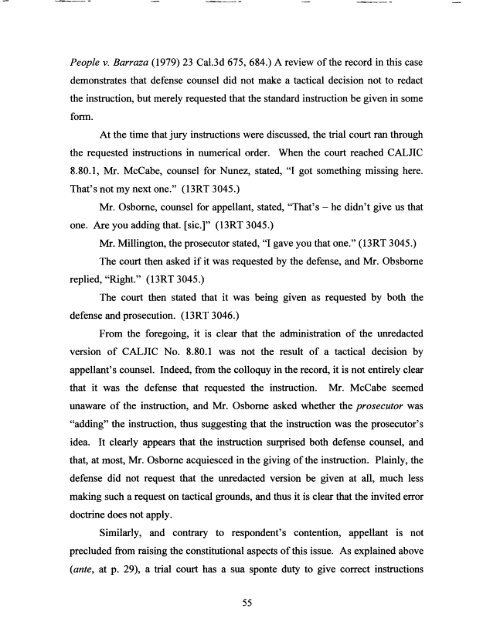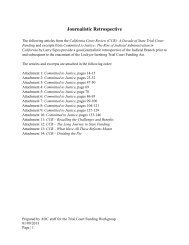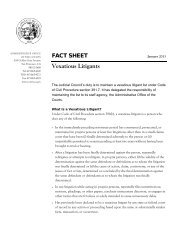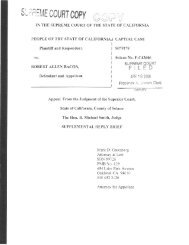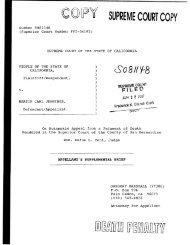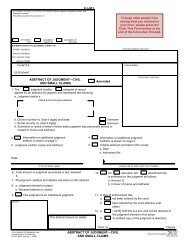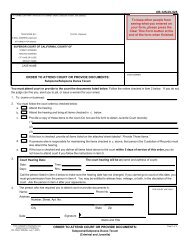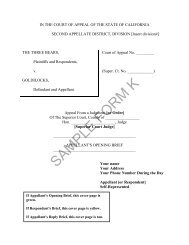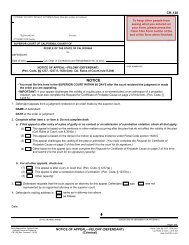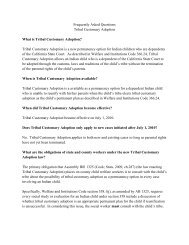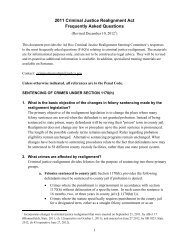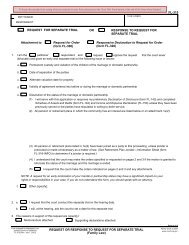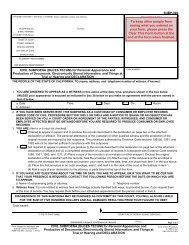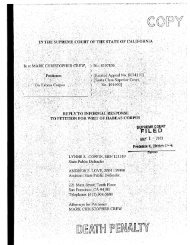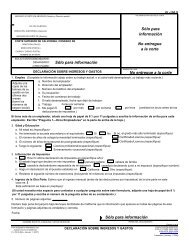Appellant, William Satele, Reply Brief - California Courts - State of ...
Appellant, William Satele, Reply Brief - California Courts - State of ...
Appellant, William Satele, Reply Brief - California Courts - State of ...
Create successful ePaper yourself
Turn your PDF publications into a flip-book with our unique Google optimized e-Paper software.
People v. Barraza (1979) 23 Ca1.3d 675, 684.) A review <strong>of</strong>the record in this case<br />
demonstrates that defense counsel did not make a tactical decision not to redact<br />
the instruction, but merely requested that the standard instruction be given in some<br />
form.<br />
At the time that jury instructions were discussed, the trial court ran through<br />
the requested instructions in numerical order. When the court reached CALJIC<br />
8.80.1, Mr. McCabe, counsel for Nunez, stated, "I got something missing here.<br />
That's not my next one." (13RT 3045.)<br />
Mr. Osborne, counsel for appellant, stated, "That's - he didn't give us that<br />
one. Are you adding that. [sic.]" (13RT 3045.)<br />
Mr. Millington, the prosecutor stated, "I gave you that one." (l3RT 3045.)<br />
The court then asked if it was requested by the defense, and Mr. Obsborne<br />
replied, "Right." (13RT 3045.)<br />
The court then stated that it was being given as requested by both the<br />
defense and prosecution. (13RT 3046.)<br />
From the foregoing, it is clear that the administration <strong>of</strong> the unredacted<br />
version <strong>of</strong> CALJIC No. 8.80.1 was not the result <strong>of</strong> a tactical decision by<br />
appellant's counsel. Indeed, from the colloquy in the record, it is not entirely clear<br />
that it was the defense that requested the instruction. Mr. McCabe seemed<br />
unaware <strong>of</strong> the instruction, and Mr. Osborne asked whether the prosecutor was<br />
"adding" the instruction, thus suggesting that the instruction was the prosecutor's<br />
idea. It clearly appears that the instruction surprised both defense counsel, and<br />
that, at most, Mr. Osborne acquiesced in the giving <strong>of</strong>the instruction. Plainly, the<br />
defense did not request that the unredacted version be given at all, much less<br />
making such a request on tactical grounds, and thus it is clear that the invited error<br />
doctrine does not apply.<br />
Similarly, and contrary to respondent's contention, appellant is not<br />
precluded from raising the constitutional aspects <strong>of</strong>this issue. As explained above<br />
(ante, at p. 29), a trial court has a sua sponte duty to give correct instructions<br />
55


